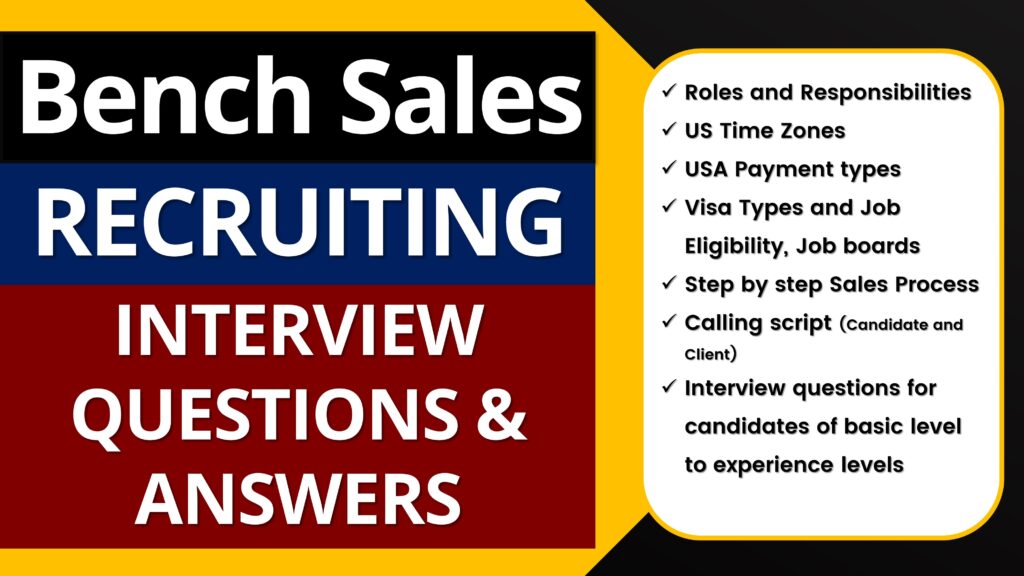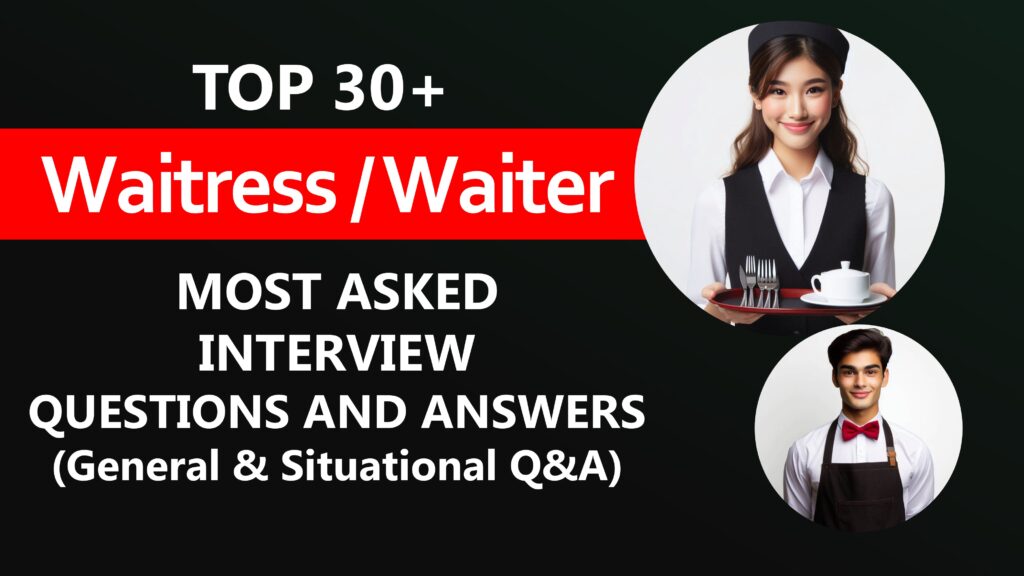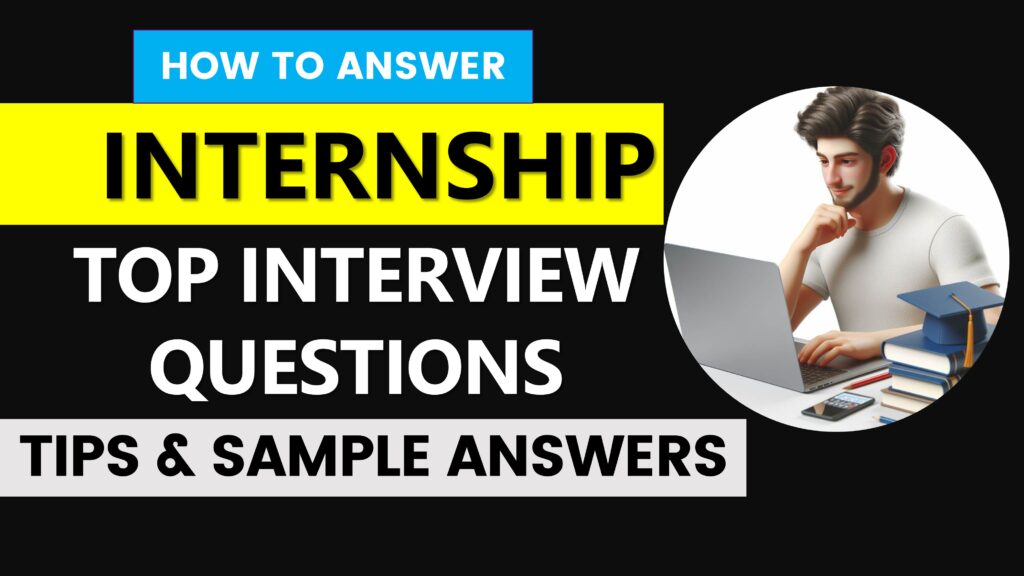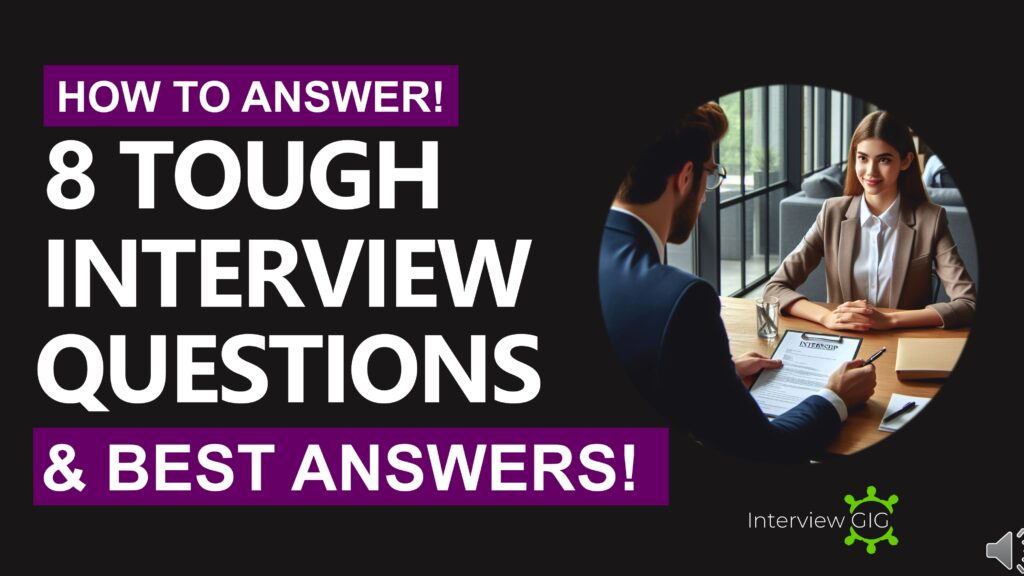Dispatcher Interview Questions
Entering the world of dispatching can be both exciting and challenging, whether you’re aiming for a role in logistics, emergency services, or transportation. The interview process is your opportunity to showcase not only your skills but also your ability to think on your feet and handle high-pressure situations.
In this blog, we’ll explore common dispatcher interview questions and provide detailed answers that will help you stand out from the crowd. With expert tips and practical examples, you’ll gain insights into the tools and techniques that successful dispatchers use every day. Get ready to equip yourself with the knowledge you need to impress your interviewers and secure that vital role in the dispatching field.
Question: Can you describe your previous experience in dispatching or a related field?
Tip: Highlight any relevant experience, including roles in customer service, emergency services, or any position that required quick decision-making and communication skills.
Sample Answer:
“I have over three years of experience in customer service, where I honed my communication and problem-solving skills. In my previous role as a call center representative, I managed high-volume calls, often dealing with distressed customers. This experience taught me how to remain calm under pressure and effectively assess situations to provide the best possible assistance. Additionally, I completed an internship with the local fire department, where I shadowed dispatchers and learned the protocols and technologies used in emergency response.”
Question: How has your academic training prepared you to excel in a dispatcher role?
Tip: Emphasize courses, certifications, or training programs that developed your critical thinking, communication, or decision-making skills.
Sample Answer:
“My coursework in psychology helped me understand human behavior, which is invaluable when dealing with callers in distress. Additionally, my training in crisis management provided me with tools to stay composed and make sound decisions under pressure. These experiences have prepared me to handle the challenges of a dispatcher role.”
Question: What motivates you to pursue a career as a 911 dispatcher, and what do you hope to achieve in this role?
Tip: Share personal or professional reasons for wanting the job. Highlight how your values align with the role’s responsibilities.
Sample Answer:
“I’ve always been passionate about helping others, and the 911 dispatcher role provides a unique opportunity to make a direct impact on people’s lives. I’m motivated by the chance to be a calm and reliable presence during emergencies. My goal is to provide excellent support to both callers and emergency responders, ensuring the best outcomes in critical situations.”
Question: If you struggled to understand a caller on the phone, how would you address the issue?
Tip: Emphasize your communication skills and willingness to seek clarification to ensure accurate information is gathered.
Sample Answer:
“If I struggled to understand a caller, I would first remain patient and attentive, ensuring that I don’t interrupt them. I would politely ask them to repeat themselves or clarify specific points. For example, I might say, ‘I’m sorry, I didn’t catch that. Could you please repeat your location for me?’ If the caller is still difficult to understand, I would use any available information from the call system, such as their phone number or location, to assist in gathering the necessary details. My goal would be to ensure that I accurately assess the situation while making the caller feel heard and supported.”
Question: How would you approach calming and assisting a caller who is overwhelmed and panicking?
Tip: Emphasize your communication skills, empathy, and ability to remain calm under pressure.
Sample Answer:
“When dealing with a caller who is panicking, my first step would be to remain calm and composed myself. I would use a soothing tone and reassure the caller that I am there to help them. I would ask them to take a deep breath and focus on my voice. Then, I would ask clear, simple questions to gather essential information while providing them with guidance on what to do next. My goal would be to create a sense of safety and control for the caller, ensuring they feel supported throughout the process.”
Question: How well do you understand the criminal laws of this county, and how would you apply them in your role?
Tip: Demonstrate your understanding of the role’s legal context and how it influences decision-making. If unfamiliar, express your willingness to learn.
Sample Answer:
“I have a general understanding of criminal laws, including those related to emergency reporting and public safety. I know how important it is to adhere to these regulations while dispatching responders. For example, ensuring the proper documentation of calls or reporting specific crimes accurately. I’m also committed to ongoing learning to deepen my knowledge and ensure compliance in every situation.”
Question: What are your long-term career goals in the dispatching or logistics field?
Tip: Discuss your aspirations for growth within the field, including any specific roles or areas of expertise you wish to pursue.
Sample Answer:
“My long-term career goal is to advance within the dispatching field, potentially moving into a supervisory or training role where I can mentor new dispatchers and help improve operational efficiency. I am also interested in specializing in emergency management or crisis communication, as I believe these areas are crucial for effective dispatching. Ultimately, I want to contribute to the development of best practices in dispatching and play a key role in enhancing the overall response capabilities of the organization.”
Question: Why do you want to work for our company, and what do you know about our operations?
Tip: Research the company’s mission, values, and operations. Highlight how these align with your own goals and values.
Sample Answer:
“I admire your company’s commitment to providing efficient and reliable dispatching services, as well as its reputation for prioritizing both employees and customers. I know you operate a state-of-the-art dispatch center and emphasize teamwork and precision, which are values I strongly align with. I’m excited to bring my skills to a company that prioritizes excellence and innovation in logistics.”
Question: If you received a call from someone who was unresponsive, what steps would you take to assess and manage the situation effectively?
Tip: Outline a clear, methodical approach to handling such a critical situation, emphasizing your ability to remain calm and take appropriate action.
Sample Answer:
“If I received a call from someone who was unresponsive, my first step would be to try to establish contact by asking simple questions and encouraging them to respond. If there is no response, I would immediately gather any available information from the call details, such as the caller’s location and any previous interactions. I would then escalate the situation by dispatching emergency services to the location while continuing to attempt contact. It’s crucial to remain calm and focused, ensuring that I provide the necessary information to responders so they can act quickly and effectively.”
Question: How do you handle sensitive or confidential information in your role?
Tip: Emphasize your understanding of confidentiality protocols and your commitment to protecting sensitive information.
Sample Answer:
“I understand the importance of handling sensitive and confidential information with the utmost care. I adhere strictly to all protocols and guidelines regarding data protection and confidentiality. This includes ensuring that any information shared over the radio or in written reports is appropriate and necessary for the situation. I also make sure to limit access to sensitive information to authorized personnel only and regularly participate in training to stay updated on best practices for information security.”
Question: How would you handle receiving an emergency call from someone you know personally, such as a friend or family member?
Tip: Show professionalism and your ability to prioritize the situation over personal emotions.
Sample Answer:
“If I received an emergency call from someone I know, I would treat it as I would any other call, focusing on staying calm and collecting the necessary information to dispatch help as quickly as possible. I would remain professional and follow the established protocols to ensure the best outcome for the individual and the situation.”
Question: If you received a call from someone in a panicked state and unable to communicate clearly, how would you handle the situation?
Tip: Demonstrate your ability to stay calm, use active listening, and guide the caller. Mention specific techniques to de-escalate the situation.
Sample Answer:
“I would maintain a calm and reassuring tone to help ease their panic. I’d ask simple, direct questions like, ‘Are you safe right now?’ or ‘Can you tell me where you are?’ If they continue struggling to communicate, I would use verbal cues like, ‘Take a deep breath and tell me one thing at a time.’ My goal would be to create a safe environment for them to share the necessary details.”
Question: How would you respond if a truck driver called you angrily to report being assigned the wrong cargo?
Tip: Highlight your conflict resolution skills and ability to stay professional. Show empathy while focusing on problem-solving.
Sample Answer:
“I would first listen to the driver’s concerns without interrupting, acknowledging their frustration with statements like, ‘I understand this is frustrating.’ Then, I would confirm the details of the issue and check the dispatch records to identify what went wrong. My priority would be to resolve the issue quickly, such as reassigning the correct cargo or contacting the appropriate team, while keeping the driver informed throughout the process.”
Question: How do you handle conflicts between drivers and clients?
Tip: Show that you can mediate disputes and maintain professionalism while ensuring both parties’ concerns are addressed.
Sample Answer:
“I believe in listening to both sides of the conflict to understand the root cause. For example, if a client reports a delay and the driver explains unforeseen road conditions, I would communicate this to the client while exploring solutions to meet their needs. Keeping open communication and finding common ground are key to resolving conflicts effectively.”
Question: Describe a time when you had to juggle multiple tasks. Were you successful, and what was your approach?
Tip: Use the STAR method (Situation, Task, Action, Result) to structure your response, highlighting your organizational skills and ability to prioritize.
Sample Answer:
“In my previous role at a call center, there was a day when we experienced a sudden influx of calls due to a system outage. I was responsible for managing incoming calls while also providing support to my team members who were handling customer inquiries. To juggle these tasks, I prioritized urgent calls and used a checklist to track the status of each interaction. I communicated clearly with my team, delegating tasks where possible. As a result, we managed to resolve the majority of customer issues within the hour, and I received positive feedback from both customers and my supervisor for maintaining composure and efficiency under pressure.”
Question: What software or tools are you familiar with for dispatch operations?
Tip: Mention any relevant tools you’ve used and your adaptability to learning new technologies.
Sample Answer:
“I have experience using dispatching software like Fleet Manager and Route4Me, as well as communication tools like two-way radios and messaging platforms. I’m also proficient with GPS tracking systems and Excel for managing schedules. I’m a quick learner and open to mastering any new tools your company uses to streamline dispatch operations.
Question: How do you feel about spending long hours communicating on the phone?
Tip: Express your enthusiasm for the role and your ability to maintain focus and professionalism during long shifts.
Sample Answer: “I understand that communication is a critical aspect of this role and that it may involve spending significant time on the phone. I am comfortable with phone-based communication and am able to maintain a professional and courteous demeanor, even during extended periods of phone calls. I am also proficient in utilizing communication tools such as instant messaging and email to streamline communication when appropriate.”
Question: What methods do you use to optimize routes and reduce travel time?
Tip: Discuss your understanding of route optimization tools and strategies to enhance efficiency.
Sample Answer:
“I use GPS tracking systems and route optimization software to analyze traffic patterns, weather conditions, and delivery schedules. I also coordinate with drivers to understand any on-ground challenges they may face. By combining technology with practical insights, I aim to create routes that save time, reduce fuel consumption, and ensure timely deliveries.”
Question: What would be your immediate response to an emergency phone call?
Tip: Focus on your ability to remain calm, follow protocols, and act swiftly.
Sample Answer:
“My immediate response would be to stay calm and gather critical information, such as the location, nature of the emergency, and any immediate dangers. I would then follow established protocols to dispatch the appropriate resources while providing clear and concise instructions to the caller to keep them safe until help arrives.”
Question: How do you handle situations where drivers report technical issues with their vehicles?
Tip: Highlight your problem-solving and communication skills.
Sample Answer:
“If a driver reports a technical issue, I would first ask for details about the problem and their current location. I’d then contact the maintenance team or a nearby service provider to assist. If necessary, I’d also adjust the delivery schedule to ensure minimal disruption to operations and keep clients informed about any delays.”
Question: How do you manage your workload during peak times or busy seasons?
Tip: Highlight your organizational skills, ability to prioritize tasks, and any strategies you use to maintain efficiency.
Sample Answer:
“During peak times or busy seasons, I manage my workload by prioritizing tasks based on urgency and importance. I use a task management system to keep track of ongoing calls and issues, allowing me to quickly assess what needs immediate attention. I also communicate with my team to ensure we are all aligned and can support each other effectively. If necessary, I am not afraid to ask for help or delegate tasks to ensure that we maintain a high level of service. Staying organized and focused helps me navigate busy periods successfully.”
Question: A driver reports that their vehicle has broken down in a remote location. What are your immediate actions?
Tip: Show decisiveness and a focus on minimizing downtime.
Sample Answer:
“I would first ensure the driver’s safety by asking them to stay in a secure location if possible. Then, I’d contact roadside assistance or a nearby repair service to address the issue. Meanwhile, I’d coordinate with the logistics team to reassign deliveries or dispatch another vehicle to minimize service disruptions.”
Question: Do you have any questions for me about the role or the company?
Tip: Use this opportunity to show your genuine interest in the company and role.
If You Have Questions
Sample Answer:
“Yes, I do have a few questions. First, can you describe the training process for new dispatchers in your company? I want to understand how you support new team members as they acclimate to the role. Additionally, what are the biggest challenges currently facing the dispatch team, and how does the company plan to address them? Lastly, how does the company support professional development and growth for its employees?”
If You Do Not Have Questions
Sample Answer:
“At this moment, I don’t have any specific questions, as you’ve provided a lot of valuable information about the role and the company. I appreciate the insights you’ve shared, and I feel that I have a good understanding of what to expect. However, I am very enthusiastic about the opportunity and would be happy to reach out later if I think of any questions as I reflect on our conversation.”
Conclusion:
As you prepare for your dispatcher interview, remember that your ability to communicate effectively and remain calm under pressure is just as important as your technical skills. By familiarizing yourself with common questions and practicing your responses, you’ll be well-prepared to demonstrate your readiness for the challenges of the job. With the insights and strategies shared in this blog, you’ll be able to navigate the interview process with confidence and clarity. Embrace the opportunity to showcase your problem-solving abilities and your passion for the dispatching field. With the right preparation, you’re not just ready to answer questions—you’re ready to take the next step in your career. Good luck!
Refer to our previous articles common interview questions, HR interview questions, behavioural interview questions, and job interview Conversion.
- Common Job Interview Questions And Answers In 2025
- Job Interview Conversation For Freshers
- Common Behavioral Interview Questions And Answers
- Most Common HR Interview Questions
- Phone Interview Questions And Answers





